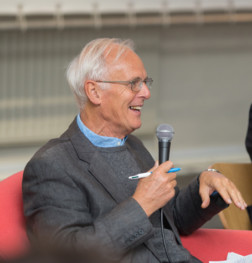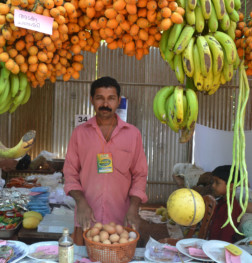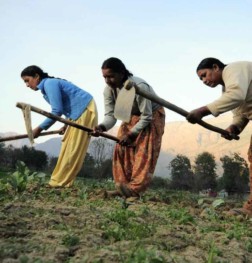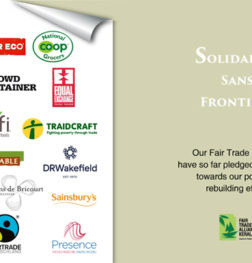
Emerging Women Leaders in Kerala, India
29 August 2013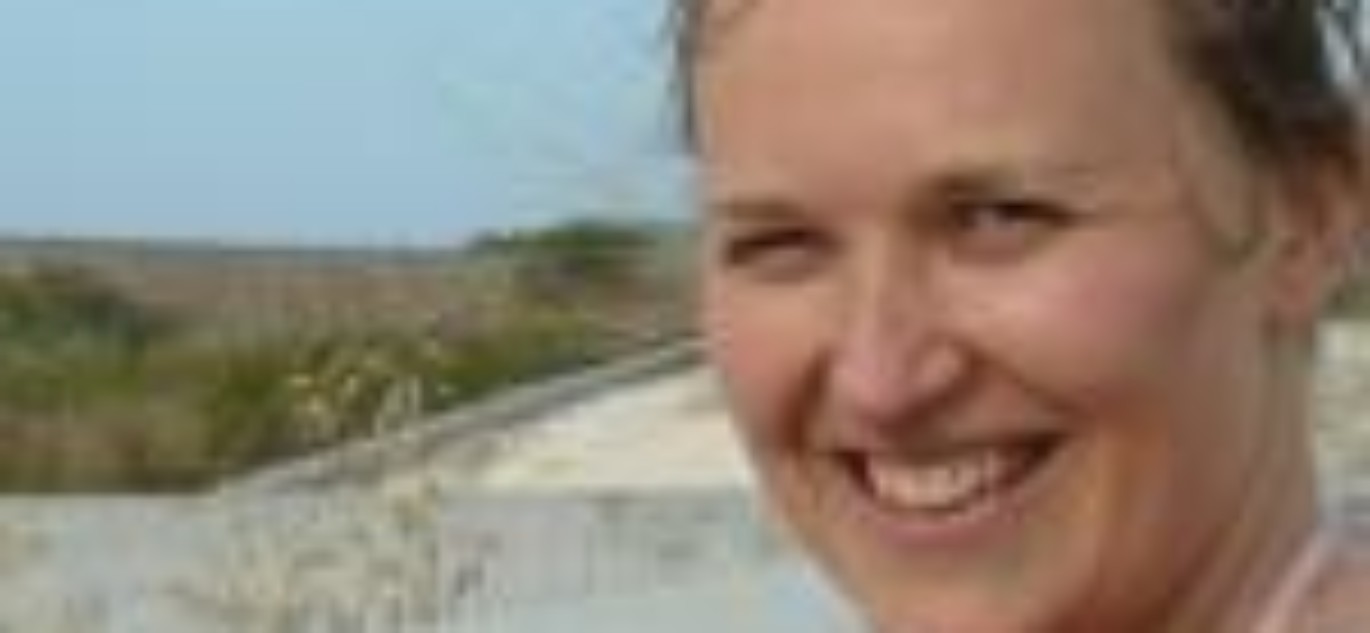
I am visiting Fair Trade Alliance Kerala (FTAK) to understand more about the role of women in the production of cashew and coffee. It is also a chance to learn about how FTAK is supporting women to participate in the organisation, through the creation of women’s groups and a fund for additional income-generating activities carried out by women. The research carried out here will help Twin develop its strategy for work on gender with farmer organisations and to share any examples of best practice with other producer groups. Having met with 36 women members at a lively meeting at FTAK’s office on Saturday, I am beginning a week of small group meetings across the different areas where FTAK is active.
I am visiting FTAK members Princy and her husband Sibi, on Manjumala, meaning ‘Misty Hill’. It is aptly named – one of the founders of FTAK Father Joy (my translator for the week) and I trek up a rocky path, admiring the views and secretly catching our breath. We find Princy who has come to meet us half way. She leads us along an intricate web of paths, across her neighbour’s new rubber plantation, and a slippery stream. It is another half an hour to her house, and I think about how she must do this journey twice a day, without doubt in half the time.
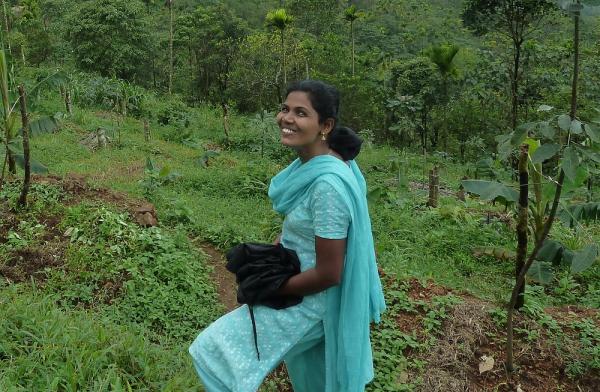
Princy is secretary of the local FTAK cell, managing the savings and credit scheme for 12 families. They each contribute 50 rupees/week (recently increased from 20) and are able to borrow larger amounts when needed, for example for buying animals, school feels or planting a new crop. There is also a communal fund for emergencies such as taking family members to hospital.
She is also involved in another government led women’s group, and teaches at Sunday school. Sibi smiled when I asked how he felt about how busy and active his wife is outside the home. He said he was very happy: “We need to sensitise women to fight for their own justice. They are not aware. Each one should be aware of their own situation as a starting point. Change is taking place. Men are supporting women to participate, it is very positive.”
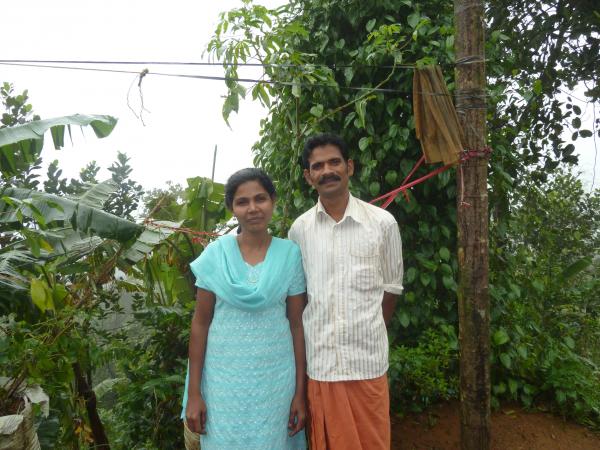
As well as managing the farm, they both do around 150 days work a year outside, Sibi in construction, and Princy sewing bags for a local tailoring business. Their biggest expense is their children’s education. They have three children in school, aged 7, 11 and 13. Travel alone costs 1500 rupees per month, and they must also pay for uniforms, books and textbooks.
In conversation, Sibi and Princy demonstrated a strong emphasis on partnership and working together, an approach which FTAK encourages. From the start, FTAK membership has been for the whole family rather than the head of household, and in 2011, they began to more actively encourage the involvement of women in the organisation and to develop their skills and confidence outside the home.
Later that afternoon, I meet other women in Princi’s area who are part of a women’s group, including the current vice-chair of the organisation, Aniamma Kulathinal Mathai. She describes the impact on women’s increasing involvement in FTAK:”There is an increasing recognition of women’s contribution, and more mutual understanding. We have been given the opportunity to go beyond the kitchen. We now go to different places for meetings. My fear has gone, I can now speak in front of other people. I have a sense of confidence and can talk to others. We understand what organic agriculture is and share with each other, at the seed festival. These are all new experiences, seeds which we have planted and are developing. Sometimes household duties are neglected but men are supportive and encouraging.”
Original article shall be found here: Emerging Women Leaders in Kerala, India
